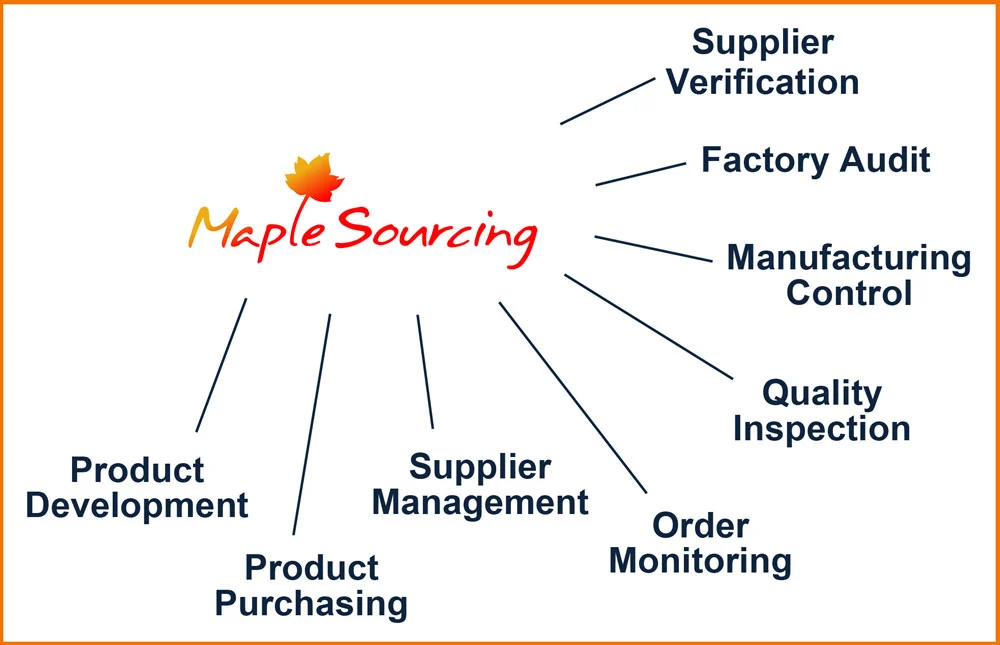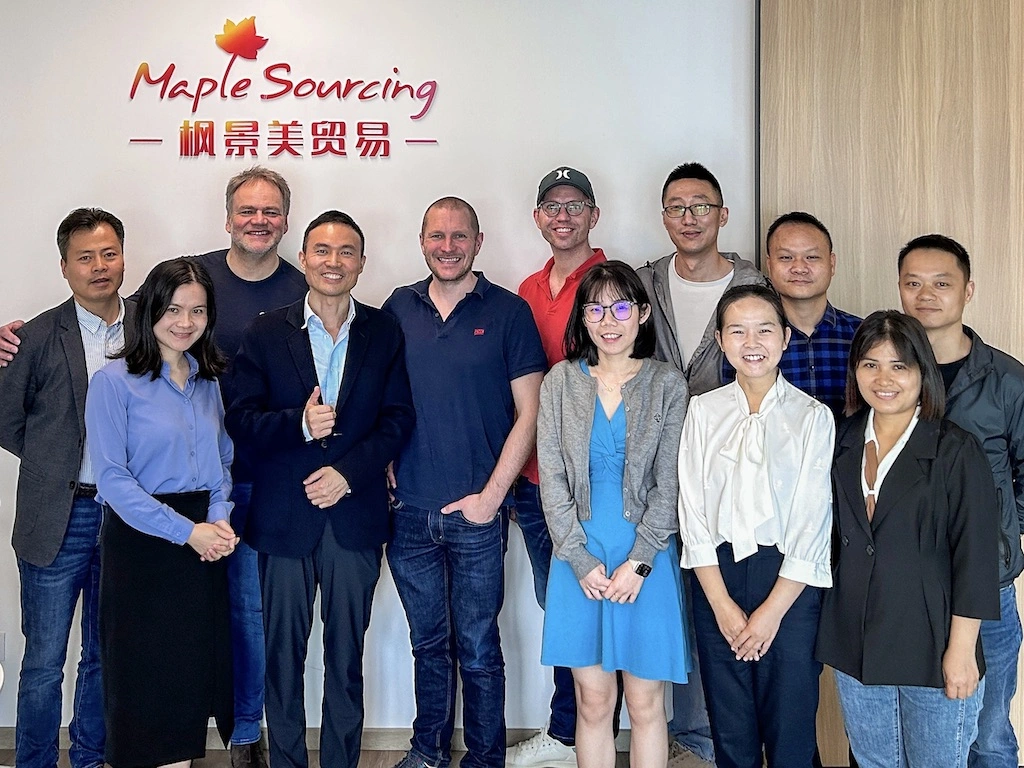

Maple Sourcing provides China direct sourcing services from eight dimensions. These global sourcing services links are complete, scientific and efficient, thus providing enterprises with a seamless and reliable procurement experience.
Our services of supplier chain sourcing help businesses find reliable manufacturers for their products. We have a wide network of trusted suppliers and can assist with supplier identification, new product development, price negotiations, product purchasing, production, and order followup.
Our services of quality control assure clients to receive the top level, flawless products. We have a professional and experienced QC team to monitor every detail of manufacturing, conduct onsite quality inspections and tests, and guarantee the quality of final products.
As one top-ranked reliable sourcing company in China, our expertise in quality sourcing will save you time and effort, ensuring you find the right partners to meet your sourcing needs efficiently and effectively.
Send email to sales@maplesourcing.com or fill below form

Global sourcing procurement is always associated some risks and uncertainties. It is difficult for sourcing and supply chain managers to understand the types of uncertainty in their businesses and develop appropriate strategies to deal with them.
Maple Sourcing is competent in providing perfect global sourcing services, which is reflected not only in excellent performance in supplier verification, but also in providing comprehensive support in quality control, project management and logistics clearance, thus greatly reducing the uncertainties that customers may face in the procurement process in China.
By working with Maple Sourcing, a trusted Chinadirect sourcing services vendor, the risks and uncertainties in supply chain and quality management are proactively and effectively managed, so the clients are more willing to enter into long-term contracts which guarantee ongoing business. The client's loyalty becomes an entry barrier for the competitors.
A major benefit of direct sourcing from China is the significant cost savings it offers. Chinese manufacturers have low production costs due to abundant labor supply, economies of scale, and low pricing of materials. This sourcing cost advantage allows businesses to access high-quality products at the best possible prices, enabling them to remain competitive in the market.
China has an extensive supplier network. With the wide network of reliable suppliers and manufacturers, businesses have many options to choose from when sourcing products from China. In addition, the large supplier network means businesses can benefit from healthy competition between suppliers, which can drive down sourcing cost and improve sourcing quality.
China offers diverse products in all major categories. The wide range of products makes it a one-stop shop for many businesses' sourcing needs. The diversity of products offered by Chinese suppliers means that businesses can find almost everything they need in one place, provides businesses with sufficient options to source products that align with their specific requirements.
China's well-developed supply chain and quality management ecosystem is a crucial factor in product sourcing success. It has a vast network of factories and supporting facilities that contribute to solid supply chain infrastructure. The efficiency translates into reduced sourcing cost, faster delivery time, and better inventory management for sourcing from China.

A critical step in managing risks in supply chain is sourcing products in China. There is also a need to balance the sourcing quality and price of the products. Moreover, production capacity and lead time needs to be considered where sourcing is concerned, as it directly impacts your project plan.
Our well-executed wholesale sourcing process allows our clients to establish consistent and predictable supply chain. In turn, the shelves stay stocked to keep customers happy. When sourcing and China supplier management is done right, it can positively affect your brand image and help create brand loyalty.
Maple Sourcing, one of the leading sourcing service vendors, also helps in cost management by providing benefits for the buyers. We negotiate lower prices for high volume purchasing and help to reduce the overall cost of the goods. It allows our clients to keep their pricing competitive.